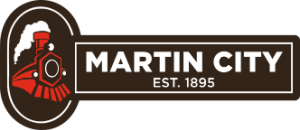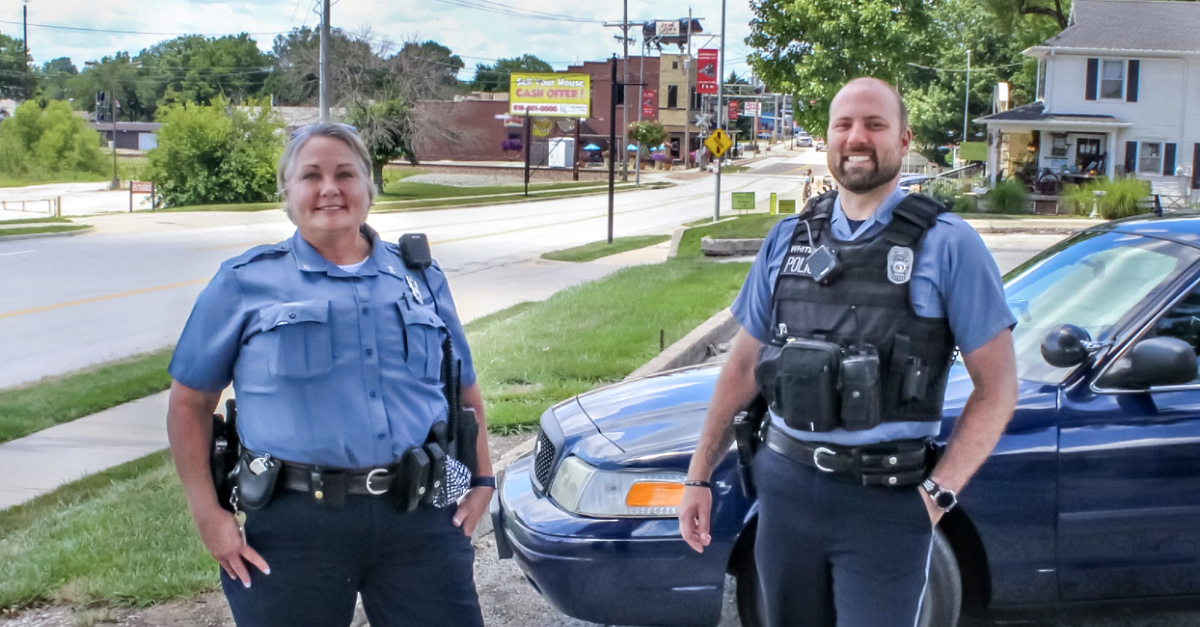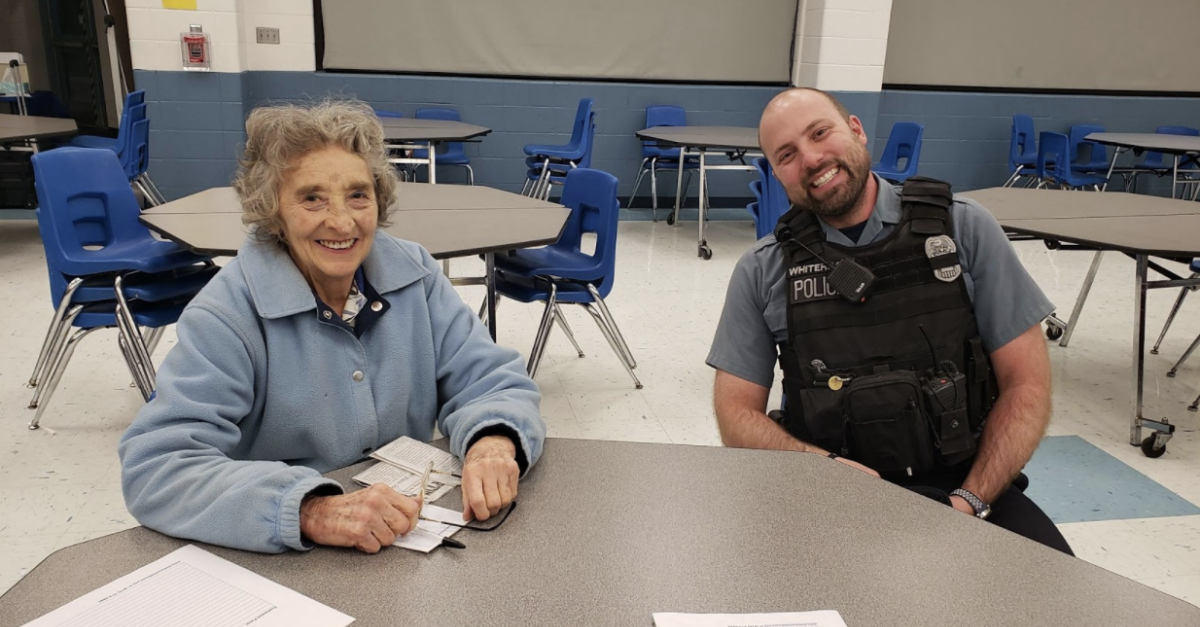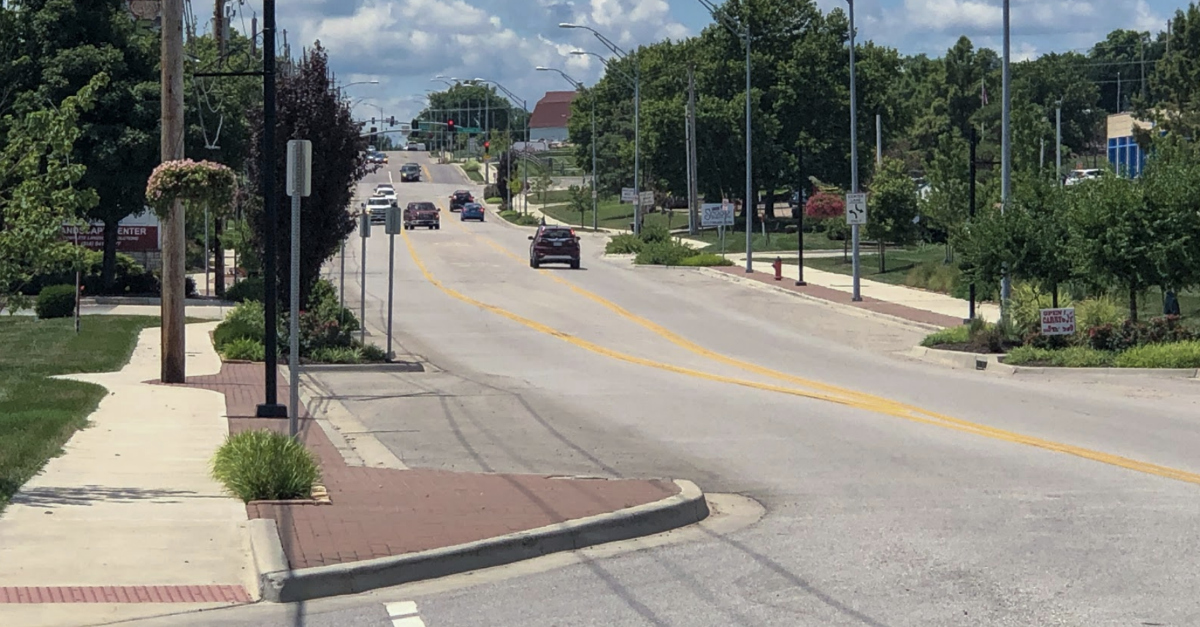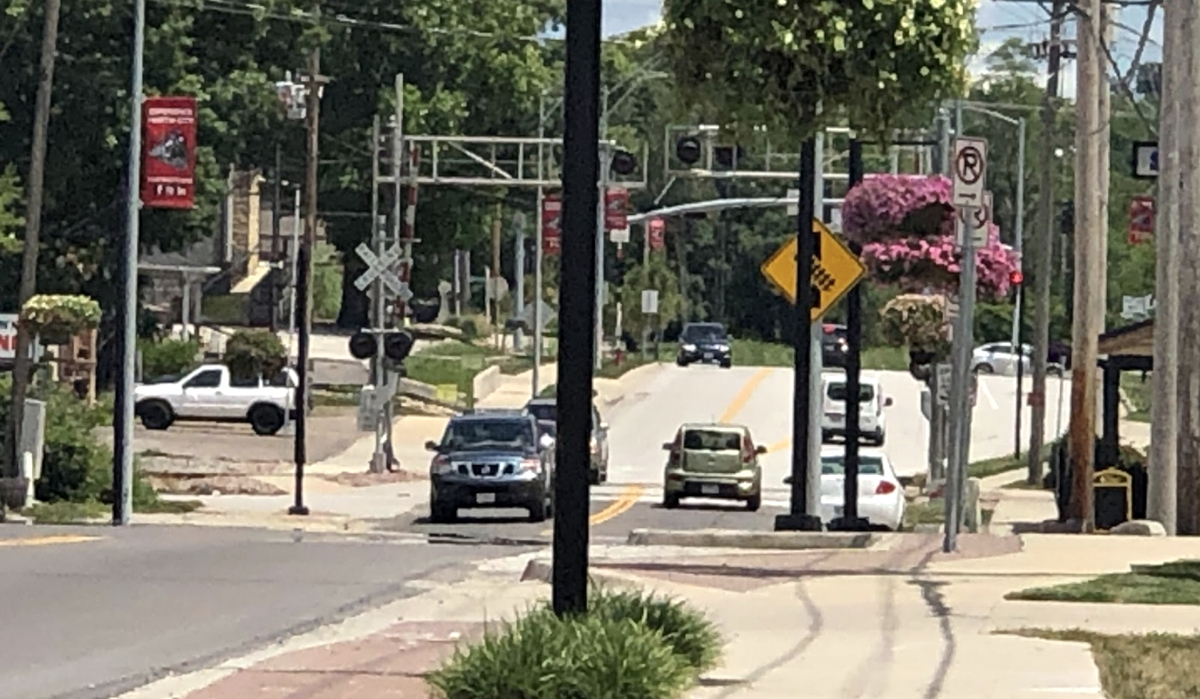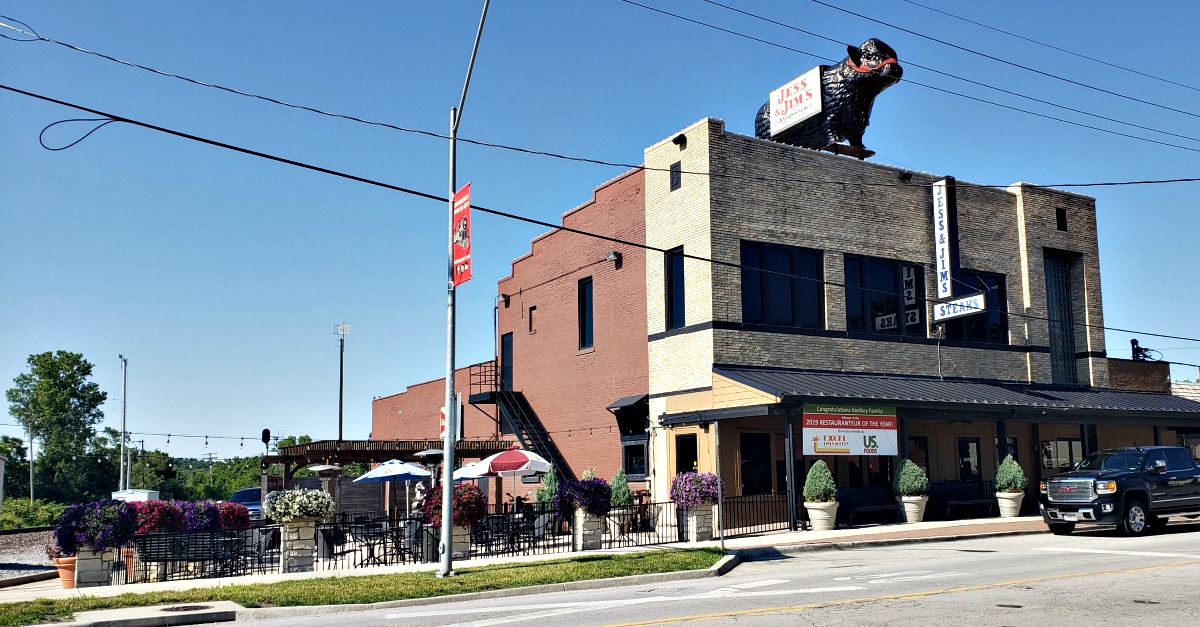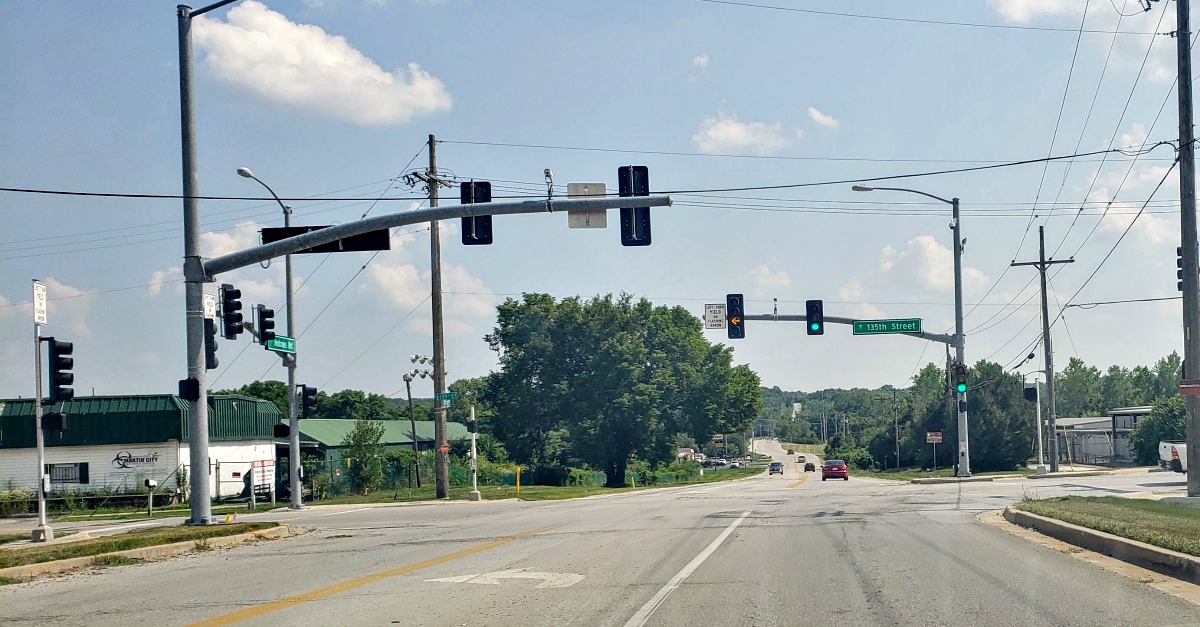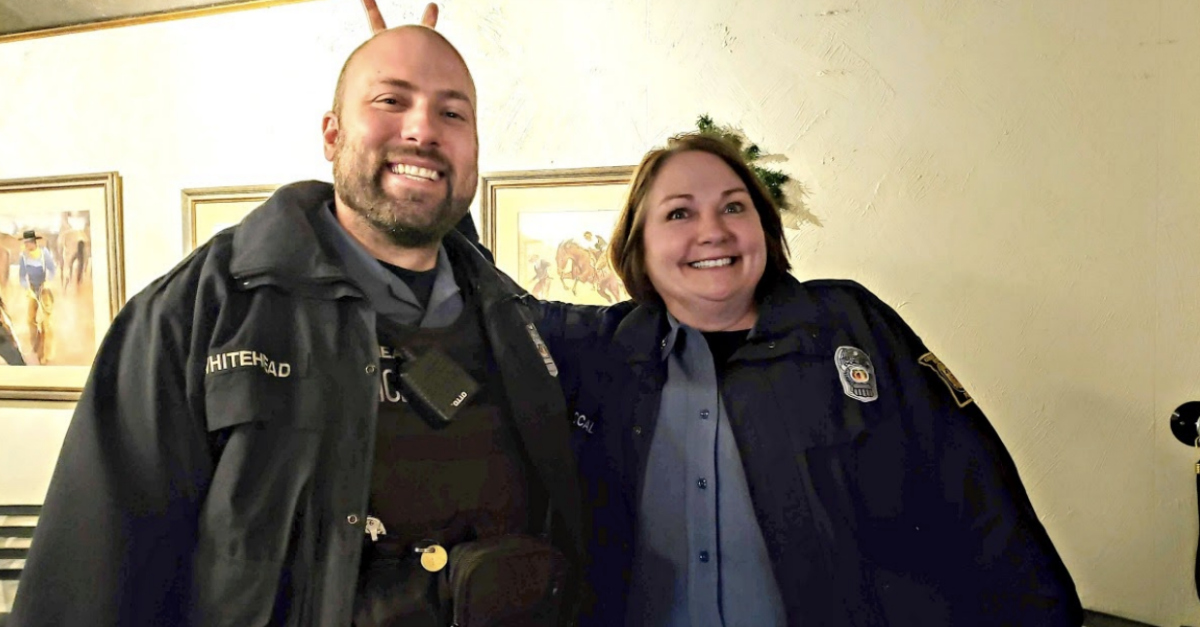Officers Give Our Community Credit for Discouraging Crime
If you haven’t met Officers Mary McCall and Aaron Whitehead, you’re missing out on two of our community’s biggest fans. They’ve been keeping watch over Martin City for the past couple of years and cheering our renewal on.
“Martin City is shining,” says McCall, gazing down 135th Street from the Holmes Road intersection. “Just look at it. This community has momentum and it shows.”
“People in Martin City value what they have and what they’ve made,” adds Whitehead, nodding his head. “It really inspires us to do all we can to help them.”
Both McCall and Whitehead are long-time veterans of the Kansas City Missouri Police Department. They’ve known each other for almost 17 years and have worked closely together protecting South Kansas City and the Martin City neighborhood.
As Community Interaction Officers, McCall and Whitehead seek a deeper relationship with the people and businesses they serve by offering help that goes beyond urgent criminal situations.
“We literally connect with the community and try to deliver information and resources that make a difference,” explains Whitehead. “I think many people know us in Martin City and they know they can call us for support. It’s great to feel like a partner in the community and not just an emergency resource.”
Like many officers in police departments under pressure to do more with less, McCall and Whitehead have a lot on their plate, but they still make it a priority to routinely make the rounds in Martin City. They can’t personally be in our neighborhood all of the time, but they tell us a KCPD patrol car is assigned to check on our streets every day.
McCall and Whitehead say the crime we’re dealing with in Martin City these days is usually confined to property crimes, like theft and burglary. And they say working with a community that cares makes a big difference in controlling the risk.
“It’s like working in a small town,” says McCall. “A small ‘hometown’ actually. That’s how it feels. Business owners here are more cooperative with each other and with the police, and that makes everything better. You know, as police officers, it’s our job to do all we can to help, but our effort goes so much farther when we’re coordinating with people who are truly invested in their community.”
Whitehead agrees. “We can help with problems, but a really powerful way of preventing them is doing what Martin City is now doing so well; taking pride in their community by cleaning it up and making it look good.”
Our community’s commitment also deters homeless activity, but just like in other areas of Kansas City, eliminating the activity is nearly impossible. Officers McCall and Whitehead do what they can to control it as they monitor Martin City. “Some days we’re in the area several times depending on what’s going on,” says McCall. “Like today, for example, this is my third time because there were reports of homeless people so we’re trying to make contact and see what we can do.”
A Complicated Challenge
Homelessness is a serious problem in Kansas City, and while our neighborhood isn’t currently a hot spot, it also isn’t immune. While the City works to organize support for people in need, police try to keep the problem from ballooning out of control. McCall and Whitehead are used to breaking up large camps set up by homeless people migrating in groups. Camps have posed a particular challenge in Martin City in the past, but Whitehead says these days the problem is more about individuals showing up here and there and raising concerns.
“We understand that no one wants any homelessness in their community, but the situation in Martin City just doesn’t compare to other areas where it’s a serious problem involving larger groups of people and requires a lot of resources and effort to manage and clear out.”
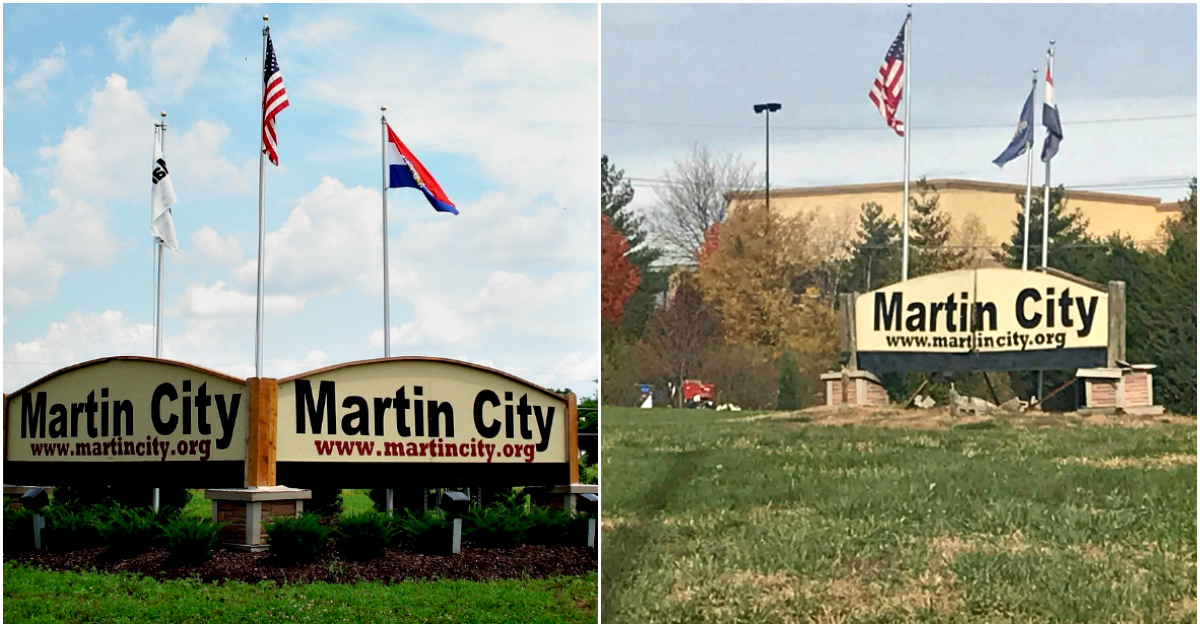
The Martin City sign at Hwy 150 and 135th Street was removed a few years ago after attracting a homeless camp.
Whitehead and McCall are experienced crime fighters and spend a lot of time fighting misunderstandings as well. One of the biggest is the assumption that homelessness is a crime. They want you to know it is not.
“We can’t arrest an individual just for being homeless,” explains McCall. “We get calls about people walking up and down the street, and it’s our job to investigate but unless they’re breaking a law, there’s nothing we can do outside of making sure they’re okay and trying to get them some help if they need it. Simply walking up and down the street isn’t a crime.”
Other complaints to police are about people along sidewalks who ‘look homeless.’ McCall says that’s not the best indication of a problem and encourages all of us to take a step back and think things through before picking up the phone.
“What’s a homeless person look like? Who are people like you and me to decide that? Is it just someone who doesn’t dress like me? Is it someone who doesn’t look as clean as me? As police officers, we can’t stop someone based on their appearance and we don’t want to. That’s discriminating against them.”
Don’t get the wrong idea. Martin City isn’t bugging the police with unnecessary complaints about the homeless, but it does happen. It’s okay to keep an eye out for trouble and make note of someone you don’t recognize in the neighborhood, but try to resist immediately calling the police unless you witness a crime or you’re concerned about someone’s welfare. “If you call us because you’re worried and feel like someone needs to be checked on because they appear to be struggling, that’s important. Call us,” says McCall. “We want to help.”
McCall and Whitehead certainly see police officers as playing a necessary role in assessing situations involving the homeless. After all, officers are typically the first on the scene to evaluate the need for law enforcement, support resources, or no action at all. Whitehead says convincing a homeless person to find shelter or get some other form of help isn’t easy. “Few are willing to accept help and just want to be left alone. And that’s okay if they’re not causing problems for someone else.”
Police understand all the associations with homeless people that concern business owners, but those associations are not always valid and they certainly don’t apply to every homeless person. Whitehead cautions against being too quick to judge or worry.
“Homelessness is associated with things like trash and stealing. That one word, ‘homeless,’ can really make business owners worry. They fear their customers will be scared away, profits will go down and the area will begin to decline. And sometimes it happens like that but not always. Sometimes a person just needs help. So it’s important to manage the bigger picture but also keep perspective.”
The fact is, as a community, we all play a role in solving the problem of homelessness. But it’s especially tough being an officer caught in the middle of a difficult issue with no easy answers. Whitehead says sorting things out can get sticky.
“On one side, you’ve got people who just want the homeless out of sight and gone. And then there’s another side, people who want to help the homeless and give them resources. And there are those who just want to leave them alone and let them live homeless as they wish. And then you’ve got the homeless themselves and each person is different. We’re trying to figure out solutions on a case-by-case basis and it’s much more complicated than you might think.”
If you have to call for help, make 311 your priority and reserve 911 for clear emergencies only. Those emergencies do not need to be crimes. They can also involve someone in urgent need because of an obvious health problem or dangerous circumstance.

Residents may call or tweet service requests, such as pothole or street sign repair reports to @KCMO311
“311 is the number to call in Kansas City for help with problems that may be solved by resources and support from various City departments. It’s an overarching City helpline,” explains McCall. “911 is strictly for emergencies and everyone needs to respect that and take it extremely seriously.”
Does misunderstanding a situation involving a homeless person or needlessly tying up a 911 line really matter? Consider the potential drain on limited resources. Whitehead spells it out.
“When you call 911, it takes the time of an operator who screens the call and then sends it to a police dispatcher, who then takes time to evaluate the situation and send a police officer. Then the officer takes time to investigate, maybe only to discover someone napping under a shade tree. Meanwhile, there could be something serious happening in another part of the City that’s not getting attention. Lives could be at stake.”
“And then you consider what it means when the police department is really busy and operating near capacity,” adds McCall. “A dispatcher may have to send a police officer from as far away as north of the river to check on someone napping in South Kansas City. As a department, we have limited people and really have to be efficient with how we coordinate them. We need everyone’s help.”
Our Revitalization is Our Best Defense
Martin City is already embracing the best strategy for avoiding becoming a magnet for crime and homeless activity. Our revitalization movement draws together a variety of factors that send a powerful deterrence message.
“Look around, this place is on the upswing,” says McCall. “Just the appearance of Martin City these days sends the message that you don’t want to mess with this community. It’s inviting, welcoming, and united in making things better, not worse.”
Whitehead says taking pride in your community and your own property shows ownership that keeps trouble away. “When someone thinks you care about your property and appreciate what you own, they will stay away from it. But if they feel like you’ve abandoned the property or don’t really care what happens there, they will be more likely to move in.”
“If I’m homeless and looking for a place to lay my head tonight, I’m not going anywhere near Jess & Jim’s,” says McCall, illustrating an example. “I can see they care about their property and they’re more likely to cause trouble for me so I’ll go somewhere else.”
The problem is the Martin City area still offers ‘somewhere else to go. Stray off of 135th Street a little and you’ll still find some properties that appear run-down, empty, and isolated — ideal places to be left alone with a little shelter. Our community’s renewal is in full bloom, but there’s still a lot of inconsistency when it comes to upkeep.
We need to get more property owners, especially business owners, off the sidelines and into the revitalization movement. Whitehead says it will become even more important as the entire area grows.
“You know areas surrounding Martin City can impact Martin City too. So if a homeless camp pops up a few streets over, that situation can spread into Martin City. That’s why it’s critical for all of us in South Kansas City to take pride in our communities and translate that feeling into upkeep that discourages problems we don’t want.”
Officers McCall and Whitehead draw a lot of satisfaction from their partnership with our neighborhood and share our excitement about the future. They applaud the example we’re setting of community spirit that can protect people and businesses even more than police patrols.
“Motivating people, let alone entire neighborhoods, can be really hard. In contrast, Martin City is devoted to making things better,” says McCall. “We don’t have to push so hard because the people here are already working in that direction. We’re more in a position of supporting their work than trying to inspire it. They’ve got that part covered for sure and we hope other communities can learn from them and follow their lead.”
If you have questions for Community Interaction Officers Mary McCall and Aaron Whitehead, please feel free to contact them at South Patrol. Don’t be nervous, these two are super easy to approach!
KCPD Officer: Mary McCall
Phone: 816-672-2828
Email: mary.mccall@kcpd.org
KCPD Officer: Aaron Whitehead
Phone: 816-949-1634
Email: aaron.whitehead@kcpd.org
- KCMO Emergency: 911
- KCMO Action Center: 311
- KCMO Non-Emergency Line: 816-234-5111
- KCMO Information Line: 816-234-5000
- KCMO Police Department website >> https://www.kcpd.org
